- Home
- John Berger
Once in Europa Page 2
Once in Europa Read online
Page 2
When Félix stopped playing, Albertine was asleep.
Neighbours came to visit the house, bringing with them pears, walnut wine, an apple tart. Albertine repeatedly declared she had no need of anything except water. She stopped eating. She would take whatever messages they wanted, she would pray with them for what they thought they needed, she would bless them, but she would accept no pity and no competition. She was the next to leave.
To the old man, Anselme, she whispered: Try to find him a wife.
It’s not like our time, he said, shaking his head. Nobody wants to marry a peasant today.
I’m glad you say that, she said.
I’m not saying Félix couldn’t get married, answered Anselme pedantically. I’m simply saying women of his generation married men from the towns.
It’s the idea of his being left alone.
I’ve been alone for twenty years! It’s twenty years now since Claire died and I can recommend it. He chuckled.
Abruptly Albertine lowered her head to indicate that it was his duty to kiss her whilst she prayed. Obediently Anselme kissed the crown of her head.
She was now so weak and thin that Félix was frightened of smothering her when he slept. One night he woke up from a dream. He listened for her breathing. Her breath was as weak as an intermittent breeze in grass waiting to be scythed. Through the lace curtains he could see the plum trees his father had grafted. The light of the moon going down in the west was reflected in the mirror behind the wash bowl.
In the dream he had again been a conscript in the army. He was walking along a road, playing an accordion. Behind him was a man carrying a sheep. It was he, Félix, who had stolen the sheep, or, rather, a young woman had given the sheep to him on condition that … and he had taken the sheep knowing full well …
The dream became vaguer and vaguer as, awake, he saw something else. He saw Death approaching the farm. Or, rather, he saw Death’s lamp, bobbing up and down, as Death strode leisurely past the edge of the forest where the beech trees in October were the colour of flames, down the slope of the big pasture which drained badly at the bottom, under the linden tree full of wasps in August, over the ruts of the old road to St. Denis, between the cherry trees against which, every July, she asked him to lean the long ladder, past the water trough where the source never froze, beside the dungheap where he threw the afterbirths, through the stable into the kitchen. When Death entered the Middle Room—where the smoked sausages were hanging from the ceiling above the bed—he saw that what he had taken to be a lamp was in fact a white feather of hoarfrost. The feather floated down onto the bed.
Abruptly Albertine sat up and said: Fetch me my dress, it is time to go!
The day after the funeral, when Félix delivered his milk to the dairy, he surprised everyone there by his cheerfulness.
Have you ever worked as a butcher? he asked Philippe, the cheesemaker. No? Well, you’d better take a correspondence course—with diagrams! Next year there’s going to be no hay, no cows, no milk, no bonus for cream, no penalty for dirt … We’re all going to be in the mole-skin business! That’s what we are going to be doing …
The absence of the mourned is as precise as their presence once was. Albertine’s absence was thin with arthritic hands and long grey hair gathered up in a chignon. The eyes of her absence needed glasses for reading. During her lifetime many cows had stepped on her feet. Each of her toes had been stepped on by a cow on a different occasion, and the growth of its nail consequently deformed. The toenails of her absence were the yellow of horn and irregularly shaped. The legs of her absence were as soft to touch as a young woman’s.
Every evening he ate the soup he had prepared, he sliced the bread, he read the Communist Party paper for peasants and agricultural workers, and he lit a cigarette. He performed these acts whilst hugging her absence. As the night drew on and the cows in the stable lay down on their bedding of straw and beech leaves, the warmth of his own body penetrated her absence so that it became his own pain.
On All Souls’ Day he bought some chrysanthemums, white ones the colour of goose feathers, and placed the pot of flowers, not by the tombstone in the churchyard, but on the marble-top commode in the Middle Room beside the large empty bed.
A week later the snow came. The children ran screaming out of school, impatient to build snowmen and igloos. When Félix delivered his milk to the dairy, he repeated the remark that Albertine had made every year when the first snow fell:
Let it snow a lot tonight, let the snow get so high our hens can peck the stars!
Through the kitchen window he stared at the white mountain. Mick was licking a plate on the floor.
The winter’s long, it would be better if we could sleep.
The dog looked up.
Who do you think is going to win the elections? The same gang as before, eh?
The dog started wagging his tail.
Do you know what you like and what they manufacture in Béthune? Do you know, Mick?
Félix strode across the kitchen towards the massive dresser. To take something off its top shelf it was necessary to stand on a chair. Its doors, with their square panes of glass and their bevelled window frames, were big enough for a cow to go through.
So you don’t know, Mick, what they manufacture in Béthune? From the bottom shelf he picked up a packet of sugar.
Sugar, Mick, sugar is what they manufacture in Béthune!
Brusquely he threw two lumps towards the dog. Three more. Six. Then he emptied the whole packet. Fifty lumps of sugar fell onto the floorboards in a cloud of dust.
Sugar in Béthune! Milk here! He shouted the words so violently the dog hid under the table.
One day in January he noticed that the floorboards, instead of being bread-coloured, were now grey like slates. He put the dog out, he stoked up the stove with wood, he took off his boots and trousers and began scrubbing on his knees. He had left it too long, the dirt was engrained. He ground his teeth, he refilled and refilled the bucket with water from the giant saucepan on the stove. The planks slowly changed colour.
The more he scrubbed, the more he saw the countless washings the floor had undergone as but a single instant in an eternity of dust and neglect. He straightened his back and looked up at the dresser. On the top shelf was their best china, decorated with sprays and garlands of flowers: violets, forget-me-nots, honey-suckle. The way the flowers were painted around the rims of the plates, in the hearts of the dishes, on the flanks of the bowls, made him think of ears, mouths, eyes, breasts.
He put on his trousers and boots, laid down sheets of newspaper and stepping from one sheet to another reached the door. Outside it was snowing grey snow. He teetered like a drunk into the stable and there, his forehead resting on one of his cows’ haunches, he vomited till there was nothing left in his stomach.
A few days later he beat the cow Myrtille. Myrtille had the bad habit of butting the cow next to her. If he showed Myrtille a stick, this was usually enough to deter her. She glowered at him with her insolently tranquil eyes, and he brandished the stick in the air and said: The bow of the violin, eh! Is that enough or do you want some music!
On the evening in question he forgot the stick and Myrtille knocked him off his stool whilst he was preparing her neighbour’s teats before plugging the milking machine onto her. Seizing a rake, he beat Myrtille across the haunches with the handle. She put her head down and he beat her harder. He was beating her now because she had reduced him to beating her. She lay down on the floor and he beat her out of the fury of his knowledge that he could not stop beating her.
In the name of God! he spat out the words as if they were his own broken teeth. Nothing! Nobody!
The shock of each blow was transmitted to his shoulders. Then the handle of the rake broke.
It seemed to him that the animal never forgave him.
Towards the end of March the giant bedspread of packed snow began to slide down the roof of the house a few centimetres each day. After a while, a border o
f packed snow overhanging the roof would crack and fall to the ground in a thousand pieces. In the cellar, despite the darkness and the thickness of the walls, the potatoes were putting out pink-violet shoots. The force of these shoots is so strong that they can pierce canvas or denim as if they were thin air.
A week earlier the doctor had asked him: Are you still vomiting? Do you want some more pills?
Félix had replied: No, Doctor … what I need is an extra pair of hands. Can you give me a prescription for that? Preferably a woman’s hands, but I’ll accept a man’s or even a boy’s.
Thus he confirmed one of the doctor’s favourite dinner-table dissertations: namely, that the dearth of women in the valley—the best men having left with the women following them—was pushing the idiots who remained towards homosexuality and even bestiality.
In twenty-four hours a well-fed cow shits a wheelbarrow of dung. The winter had lasted a hundred and fifty days and Félix had seventeen cows. He recalled the time, before they bought a tractor, when all the winter’s dung had to be forked into a tip-cart, hauled by the horse and unloaded in heaps, to be spread out again with a fork over the fields. Now he had a mechanical shovel and a spreader. And now he was alone.
Albertine had been right: there were fewer mole hills. Many moles must have died, the strongest eating the weakest. In the morning when he started up the tractor it was freezing. By midday on the hillside with the spreader, he was sweating. This year he refused to take off his sheepskin jacket. If he caught cold and fell ill, there would be nobody else to milk the cows. His solitude had strange ramifications. His trousers caked with cowshit went on stinking until he himself put them in the washing machine. Sometimes the solitude of the house smelt acrid like cowshit.
Every evening, sitting at the table beneath the clock that was always half an hour fast so that he would not deliver the milk too late at the dairy, he decided what to do the following day. Shit till Sunday, Mick, or shall we do the wood?
During the winter it had been a question of killing time. Now time was resurrected. He forgot obvious things. He fed the chickens and forgot the eggs. He hadn’t collected eggs from the hen house since he was seven when his father went away for the second time. The first time his father went away was for his military service, the second time was when he went to Paris to earn the money to re-cover the roof of the house with tiles; it took him four winters to earn enough.
How often had he heard his father tell the story of his time in the army. Soldier Berthier! Why did you not obey the order given to you? Replied his father: One of you tells me to do this, another of you tells me to do that, another of you tells me to do something else, so what am I to do? Just tell me clearly what you want and I’ll do it! Soldier Berthier! Clean out this room! One of you tells me to do this, another one tells me to do that … To every order, his father replied in the same way. Soldier Berthier, one month’s detention! He was put in a cell. Prisoner Berthier, are you a good shot? You tell me clearly what you want, and I’ll do it. The Company needs a good marksman, Berthier! He was taken out and given a rifle and five bullets. He scored five bull’s-eyes. For the rest of his military service he had no duties and no fatigues. All he had to do was go occasionally and shoot in the regimental competitions on the rifle range. When his father finished the story, he always added: On this earth, Felo, you need to be clever.
In April he planted his potatoes. It was as hot that year in April as it usually is in June. Walking slowly along the drill, he dropped a potato between his legs every twenty centimetres. Sometimes the potato fell badly and he was forced to bend down to place it properly.
There are some who know where to go, Mick, and some that have to be put in their place!
Each time he chose with his eyes the exact place between the clods where he hoped the potato would fall. If he did not do this, it fell badly.
The last potato planted, he climbed towards the house. It was almost noon. Suddenly he stopped in his steps. High above the roof a swarm of bees was flying away from the sun towards the north.
Rushing into the kitchen, he came out with a large saucepan and a metal soup ladle. He ran through the orchard rattling the ladle in the saucepan. Mick was barking at his heels. When he was ahead of the swarm, he drummed harder than ever, and held the saucepan so that it glinted in the sun and flashed like a mirror. The swarm, subject to a single will, made straight for the nearest plum tree and settled on one of its branches.
Now he could take his time. He found an empty hive and rubbed its inside with plum leaves. He strolled over to the outhouse to fetch a saw. He sawed off the branch on which the bees were settled and carried it over to the hive. There he tapped the branch smartly with a plank and the swarm fell off like a wig.
If the Queen is there, they’ll stay. If not, they’ll leave tomorrow.
It was then that he heard his mother’s voice calling him by name. The sound the bees were making gave birth to her voice, and at the same time muffled it. The voice went on repeating his name as if the solitude of his days were now in the name itself.
Each season loads up men as if they were wheelbarrows and then wheels them forward to do its tasks. Félix ploughed the field for the alfalfa. One day, when he was twelve, in the field he was now ploughing, his father had said to him:
Do you want to come hunting with me?
They climbed, both of them, to the forest below Peniel.
We’ll wait here, Felo, and do nothing. Shut your mouth and keep your eyes skinned.
His father cut some branches from a beech tree and arranged them like a light screen in front of them. The beech leaves, just unfurled, were as fresh-looking as lettuces. They waited behind the screen for what seemed to Félix an eternity. The bones in his body began to ache one by one because he didn’t dare move a limb. His father sat there as patient as if he were listening to music, his gun between his knees. From behind a spruce twenty metres away, a wild boar appeared, hesitated, and then walked, like a confident habitué, across their vision. The father fired. The boar keeled over and lay down as if inexplicably overcome by sleep.
Do you know what’s important in this life, Felo?
No, Papa.
Good health. And what does good health give you? It gives you a steady hand.
The father prodded the animal with his boot.
Guard him! he said and disappeared down the path to the village. Félix sat on his heels beside the dead boar, whose small eyes were open. When his father returned with a sledge across his back, he was panting hard but grinning. Together they tied the carcass—it weighed a good hundred and fifty kilos—onto the light sledge. Then they started the difficult journey down.
Father Berthier put himself between the two wooden arms in the position of a two-legged horse. Like this he could pull when the runners of the sledge met an obstacle or when the slope wasn’t steep enough, and like this, if they were running too fast over the mud or the new slippery grass, he could brake by digging in his heels and lifting up the front of the sledge so that its weight leant backwards and the back of the sledge was forced into the ground. Félix followed, holding on to a rope to brake the speed, but in fact being pulled along ever faster. One false step on his father’s part and the charging boar and sledge would knock him onto his face and ride over him.
His last run home, Felo!
Not so fast, Papa!
The boy had his father’s gun across his back.
When they were down on the road which passes the café, they stopped to give their legs a rest.
It’s the knees, isn’t it, which feel it?
My legs aren’t tired, lied the boy.
There’s a man for you!
Along the grass bank by the side of the road the sledge slid gently and easily. The boy let go of the rope and put the gun under his arm, carrying it like a hunter.
They met Louis, who could argue a politician under the table.
The month of May, the season for hunting? asked Louis.
It’s
no gazelle! said his father.
I’d hide him quick if I were you, said Louis. How many shots?
One shot, only one shot. Felo here is going to be a hunter. His hand’s as steady as a rock.
And Félix, although he knew why his father, cunning as ever, had invented this story, was filled with pride.
When they got home and the boar had been hidden in the cellar, his father said: It’s time you learnt to use a gun, I’ll find you one. What do you say to that?
I’d rather have an accordion, replied Félix.
An accordion! Ah! you want to seduce the girls, eh?
One night, a few months later, Félix was in bed and he heard his father come into the kitchen, shouting in the sing-song voice which meant he had been drinking. There were some other men with him who were laughing. Then there was a silence, and, suddenly, the strains of an accordion being clumsily played. I got it for Felo, he heard his father shout, got it off Valentine. She was glad to be rid of it, now Emile’s dead, what could she do with an accordion? Poor Emile! said another voice. She never liked him playing, said a third man, she’d walk out of the room as soon as Emile picked the thing up. How’s that? She was jealous was our Valentine and Emile encouraged her to be so. He liked to make her jealous! Do you know what he named his accordion? What did he call it? He called his accordion Caroline! Come and sit on my knees, Caroline, he’d say, come and have a cuddle! All you men are the same! Félix heard his mother protest. Come and sit on my knees, Albertine! his father roared, come here and I’ll give you a squeeze! He pressed on the bass buttons and the instrument lowed like a bull. You’ll wake up Félix, you will! his mother said.
It was a diatonic accordion with twelve bass keys for the left hand, made by F. Dedents in the 1920s. The keys had pearly heads, its sides were blue decorated with yellow flowers, and the reeds were made of metal and leather. He learnt to play it seated, resting the right-hand keyboard on his left thigh and opening the accordion like a cascade falling towards the floor to the left of the chair. A cascade of sound.

 Once in Europa
Once in Europa To the Wedding
To the Wedding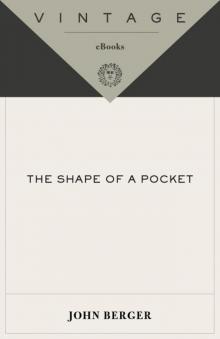 The Shape of a Pocket
The Shape of a Pocket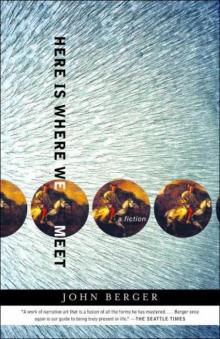 Here Is Where We Meet
Here Is Where We Meet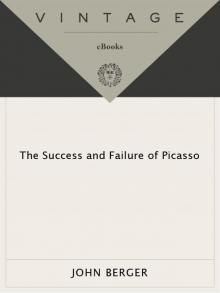 The Success and Failure of Picasso
The Success and Failure of Picasso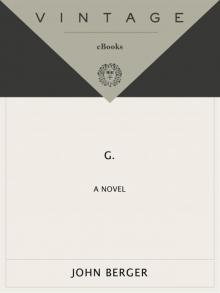 G.
G. Photocopies: Encounters
Photocopies: Encounters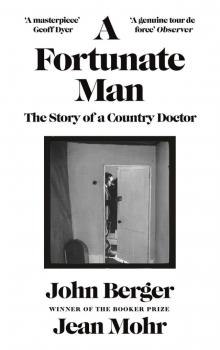 A Fortunate Man: The Story of a Country Doctor
A Fortunate Man: The Story of a Country Doctor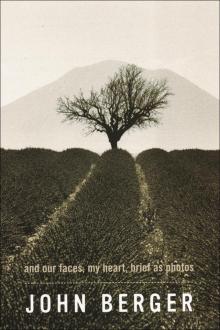 And Our Faces, My Heart, Brief as Photos
And Our Faces, My Heart, Brief as Photos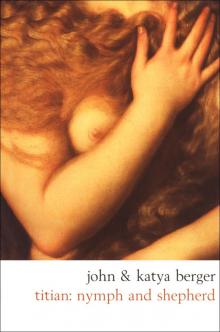 Titian
Titian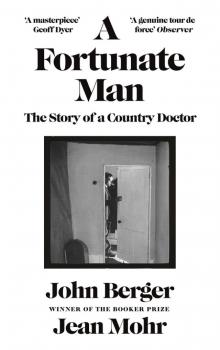 A Fortunate Man
A Fortunate Man Photocopies: Encounters (Vintage International)
Photocopies: Encounters (Vintage International) Selected Essays of John Berger
Selected Essays of John Berger